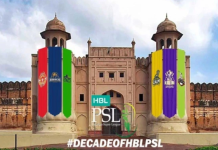Tennis superstar Novak Djokovic said on Monday he was still hoping to compete in the Australian Open after winning a stunning victory over the Australian government in his visa battle.
The ruling by a judge in Melbourne overturned the cancellation of Djokovic’s visa on COVID-19 health grounds, and ended the unvaccinated player’s detention in an immigration facility, potentially clearing the way for him to play in the tournament that starts next Monday.
His mother Dijana, speaking at a press conference in Belgrade, called it “the biggest victory in his career, bigger than all his grand slams”.
Djokovic tweeted from Melbourne: “Despite all that has happened, I want to stay and try to compete for @AustralianOpen. I remain focused on that.”
In an emergency online court hearing, the judge ordered that the decision to cancel Djokovic’s visa “be quashed”.
He instructed that the 34-year-old men’s world number one “be released immediately and forthwith from immigration detention”.
‘Truth and justice’
Hours later, his family said justice had been served.
“Truth and justice came to the light. I would like to thank the justice system of Australia,” said his brother Djordje in Belgrade, adding that Djokovic had been able to train since being released from detention.
Djokovic posted a photo on social media showing him on the court in tennis gear in Melbourne with coach Goran Ivanisevic and other members of his support staff.
The ruling marked an extraordinary setback for Australia’s conservative government, which has imposed strict border restrictions for the past two years to halt the spread of COVID-19.
Australian taxpayers will be asked to pay costs for Djokovic’s high-powered legal team.
Several hundred fans dressed in the Serbian national colours gathered outside the Melbourne law offices where Djokovic had watched his successful appeal, dancing and chanting his nickname “Nole”.
“It’s a big thing for Serbian culture and community,” said Marijana Djukic, a 20-year-old university student.
Police later used pepper spray to disperse fans who mobbed a luxury car leaving the offices in which Djokovic was thought to be travelling.
His lawyers and police left the scene shortly afterwards.
Djokovic had arrived in Melbourne on Wednesday ahead of the Australian Open, where he hopes to win a record-breaking 21st Grand Slam title.
But the tournament may yet be out of reach.
The government’s lawyer told the court that Immigration Minister Alex Hawke may decide to use his “personal power of cancellation” despite the player’s legal victory.
Rafael Nadal, one of Djokovic’s main rivals for the title, said “it is the fairest thing” for his rival to play in the Australian Open.
“Regardless of whether or not I agree on some things with Djokovic, without any doubt, justice has spoken,” Nadal told Spanish radio station Onda Cero.
Federal court, centre court
After touching down in Australia last week, Djokovic was taken into an overnight interview with border agents, who decided the champion had failed to present a solid medical reason for not being jabbed.
“I am not vaccinated,” he told the official.
Djokovic’s visa was revoked and he was moved to a notorious immigration detention facility pending deportation.
He spent four nights in the former Park Hotel, a five-story facility that holds about 32 migrants trapped in Australia’s hardline immigration system — some for many years.
An early plea by Djokovic to be moved to a facility where he can train for the Australian Open had fallen on deaf ears, his lawyers said.
The court’s finding said the government had conceded that its actions were “unreasonable” because the player was not given the chance to reply fully before his visa was torn up.
In the early hours of Thursday, Djokovic had been told he had until 8:30 am (2130 GMT Wednesday) to reply to the proposed cancellation of his visa. But instead, the border agent cancelled it at 7:42 am.
The judge said that had Djokovic been given until 8:30 am as first promised, “he could have consulted others and made submissions to the delegate about why his visa should not be cancelled”.
According to a transcript of the airport interview, Djokovic told the border control agent: “I just really don’t understand what is the reason you don´t allow me to enter your country.”
Though it had no bearing on his court case, Djokovic’s claim of a positive test on December 16 stirred controversy after it emerged he had attended a gathering that day for the Serbian national postal service, which launched a stamp series in his honour.
And pictures shared by the Belgrade tennis federation showed him at a young players’ event in the city on December 17.
It reported that he handed over cups and prizes to players. No one was wearing a mask.









